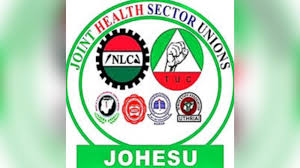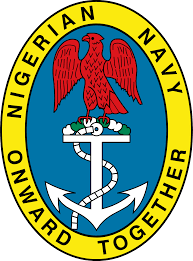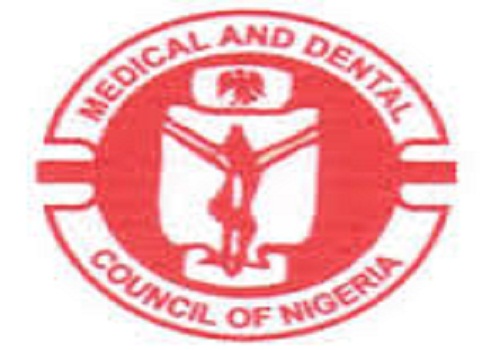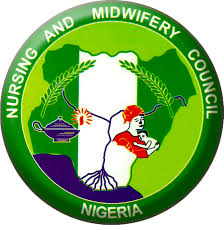52nd/53rd Scientific Conference and Annual General Meeting of the Paediatric Association of Nigeria held at the Amunice Event and Conference Centre, Uyo, Akwa Ibom State 18th to 22nd January 2022
COMMUNIQUE
Preamble The 52nd/53rd Scientific Conference and 53rd Annual General Meeting of the Paediatric Association of Nigeria (PAN), tagged PANConf UYO 2022, held at the Amu nice Event and Conference Centre in Uyo, Akwa I bom State, from the 18th to 22nd of January 2022.
The conference themed Child Abuse: An Escalating Menace in Nigeria, had four subthemes, namely, Technological and Molecular Advances in Child Healthcare, Adolescent Depression and Suicide, Genetics in Child Health and Pneumonia in the wake of COVID-19.
The opening ceremony held on the 19th of January 2022. It was chaired by the Vice-Chancellor of the University of Uyo, Prof. Nyaudoh Ndaeyo. The ceremony was declared open by the Special Guest of Honour, the Executive Governor of Akwa Ibom State, His Excellency Udom Emmanuel, who was ably represented by His Excellency, the Deputy Governor of Akwa-Ibom State, Mr Moses Frank Ekpo, MFR. Other special dignitaries in attendance were the Chief Medical Director of the University of Uyo Teaching Hospital, Prof. Ememabassi Bassey, President of Nigeria Medical Association (NMA), Prof. Innocent Ujah who was represented by the NMA National Publicity Secretary, Dr. Aniekeme Aniefiok Uwah, and the Honourable Commissioner of Health, Akwa Ibom State, Prof. Augustine Umoh.
There were 486 international and local participants which included paediatricians, paediatric residents, nurses, officials of governments, international development partners, civil societies, and other allied health workers in the child health space. The conference featured several pre-conference activities including the training of Primary Health Care Workers in Akwa Ibom State on the critical skills of Helping Babies Breath & Essential Newborn Care (HBB/ENC), and the more advanced Neonatal Resuscitation Training (NRT) for doctors and nurses from different regions of Nigeria. These trainings are a consistent responsibility and contributions towards better national neonatal and childhood health indices by PAN. Six other subspecialty workshops also held in the areas of childhood neurology, haematology-oncology, neonatal respiratory support, and asthma & allergy.
Prof. Olayinka Omigbodun, a Professor of Child and Adolescent Psychiatry and Provost of the College of Medicine, University of Ibadan eloquently delivered the keynote address titled The Vicious Cycle of Child Abuse and National Insecurity. The lecture illuminated the link between all forms of child abuse and the consistent surges and prevalence of insecurity in every region of Nigeria. The urgent need for recognizance by all stakeholders that positive influences in early childhood in the form of good parenting, quality education, communal and social responsibility towards all children, and good governance especially in child rights and protection policies, are the cornerstone for national security, economic growth and nation-building.
The conference featured 11 plenary sessions, 7 symposia, 3 panel discussions, 4 parallel scientific sessions and poster presentation. Over 160 papers were presented on various aspects of Paediatrics and Child Health. The Nigeria Journal of Paediatrics (NJP) plenary session was on Evidence-based Beside Paediatrics and Global Child Health -the Role of Systematic Reviews provided an insightful and helpful approach to the subject matter. Other topics exhaustively explored during the plenary sessions included the scope, burden, factors and remedy of child abuse, Child abuse and social media, Child protection services in Nigeria, and adolescent depression and suicide, sustaining routine immunisation financing in Nigeria beyond the context of COVID-19, Pneumonia in the wake of COVID-19, and the Result of immediate Kangaroo Mother Care trial. Additionally, presentations on Quality improvement for newborn health in Nigeria and "The newborn care policy guidelines" were made by the Federal Ministry of Health. Other discussions focused on Technological and molecular advances in child healthcare and Genetics in child health were also held. Dr Bede Ibe and Dr Ngozi Ibeziako were honoured as the 2021 and 2022 recipients of the Dr and Mrs Bolaji Ajenifuja Distinguished Paediatrician Award, respectively.
Observations
- Child Abuse, also known as child maltreatment, is a global phenomenon. In Nigeria six out of 10 children experience physical, emotional, or sexual abuse before the age of 18 years.
- Child Abuse has serious consequences in the immediate and long term for the child, family, and the nation and interacts to undermine national security by fuelling banditry, kidnapping and religious intolerance.
- Children are more likely to be abused in settings where there is power imbalance, faulty Child Abuse reporting system, lack of political will to domesticate the Child Rights Act, fund child protective services and punish offenders.
- Adolescence is a vulnerable period physically and psychologically, with heightened risk for mental illnesses including depression, suicide, and drug use disorders.
- Adequate technology and skilled manpower for care of small and sick newborns are lacking and impeding progress towards reduction of newborn deaths in Nigeria
- Pneumonia is a leading cause of under-5 mortality globally and in Nigeria, with most deaths occurring at home especially during the COVID-19 pandemic; pneumonia is a hidden killer of children with no strong advocate unlike COVID-19.
- Technological advances and Genetics are playing an expanding role in child health and come with unique ethical dilemmas.
Recommendations
- All stakeholders from the family to the community, NGOs, professional bodies including PAN and the Government should play more decisive roles in protecting children from child abuse and punishing offenders. Government should strengthen the reporting system for cases of child abuse.
- The Child Rights Act should be domesticated in states of the Federation where it is yet to be domesticated; in States where the Act has been domesticated it should be fully implemented.
- The conference recommends that the reporting of child abuse should be mandatory by law, and the process protected to secure the identities of the victim and the reporter and ensure the successful prosecution of the assailant.
- Adolescent-focused and adolescent-friendly services should be implemented nationwide; in addition, all children should be provided a safe environment when using the internet and social media.
- A nationwide study should be designed and conducted to better understand the burden of child abuse in Nigeria.
- The Government at all levels should prioritise the provision of low-cost, effective, and durable technologies for the care of small and sick newborn; no effort should be spared in recruiting, training, and retaining a skilled workforce for newborn care.
- The collaboration between PAN, Government and Developmental partners such as UNICEF and Save the Children should be strengthened to drive and sustain efforts to curb the high rate of preventable child deaths from pneumonia in Nigeria.
- The pneumonia guidelines should be reviewed and simplified for use at all levels of health care systems particularly PHCs across Nigeria.
- Members of PAN should embrace and explore the ever-expanding role of Genetics in child health and recognise that diagnostic and therapeutic opportunities for child health in Nigeria are expanding in scope.
Signed:
Dr. Olufemi Ogunrinde
President, PAN
Dr. Maria Garba
Secretary, PAN





